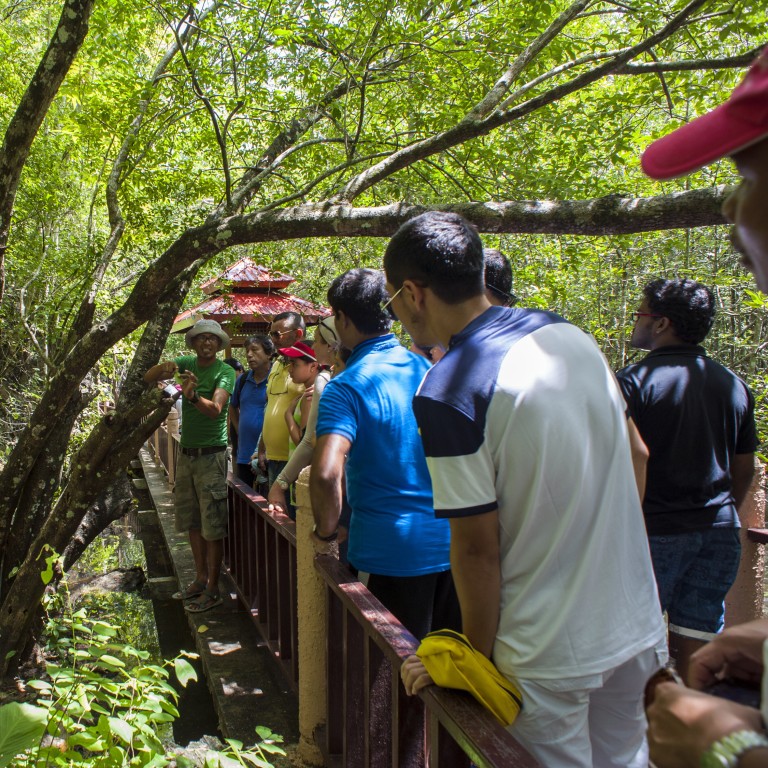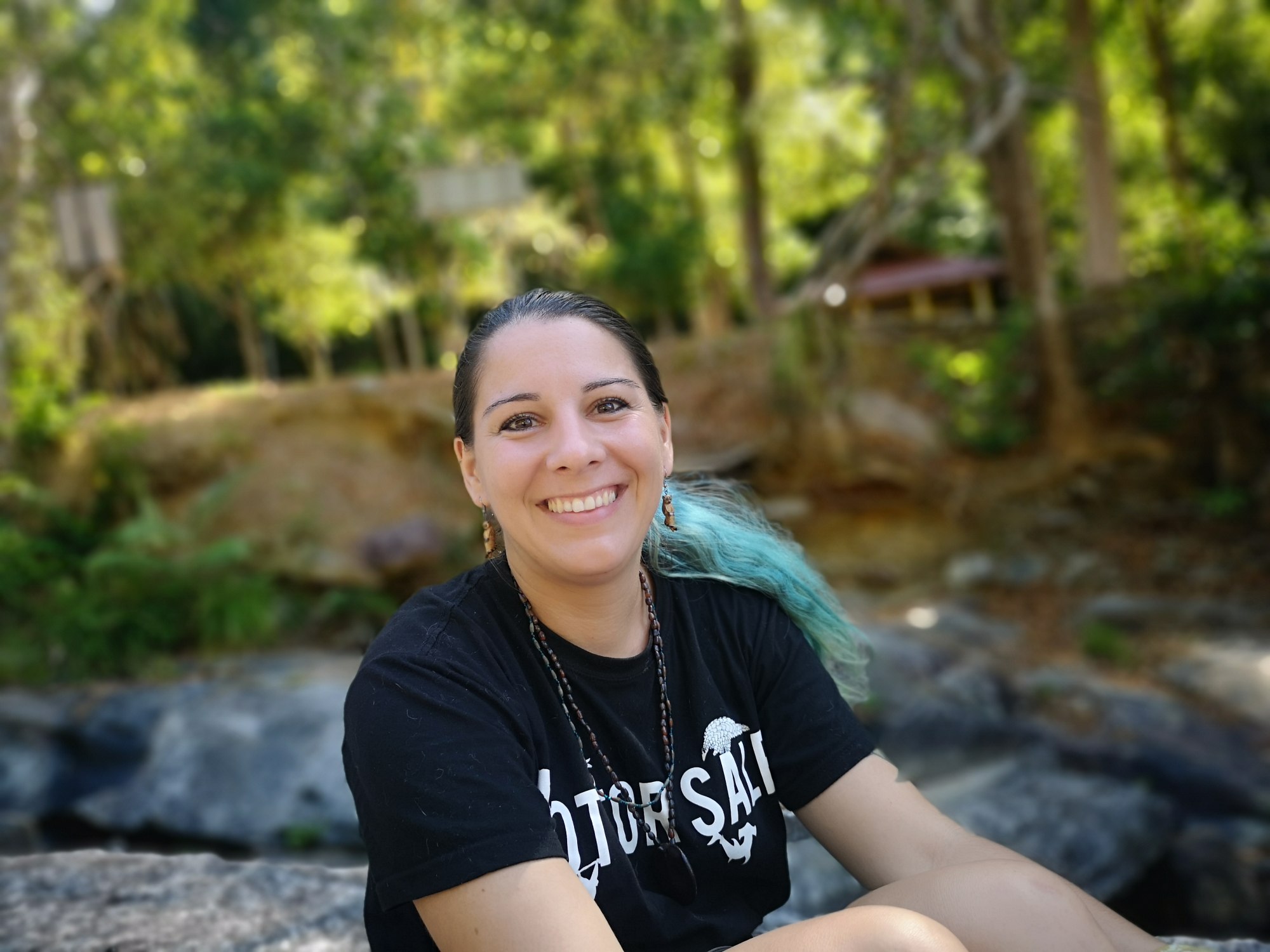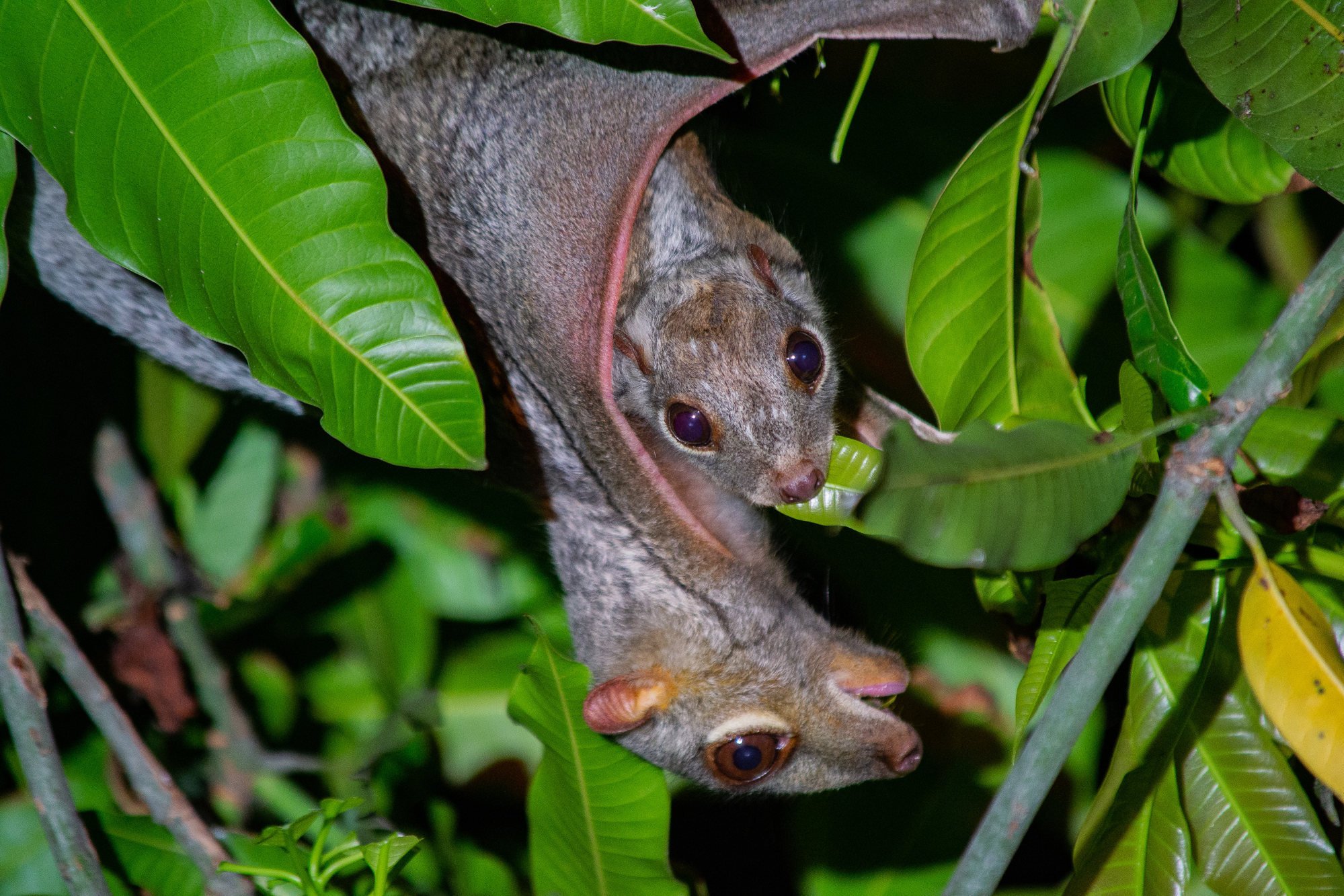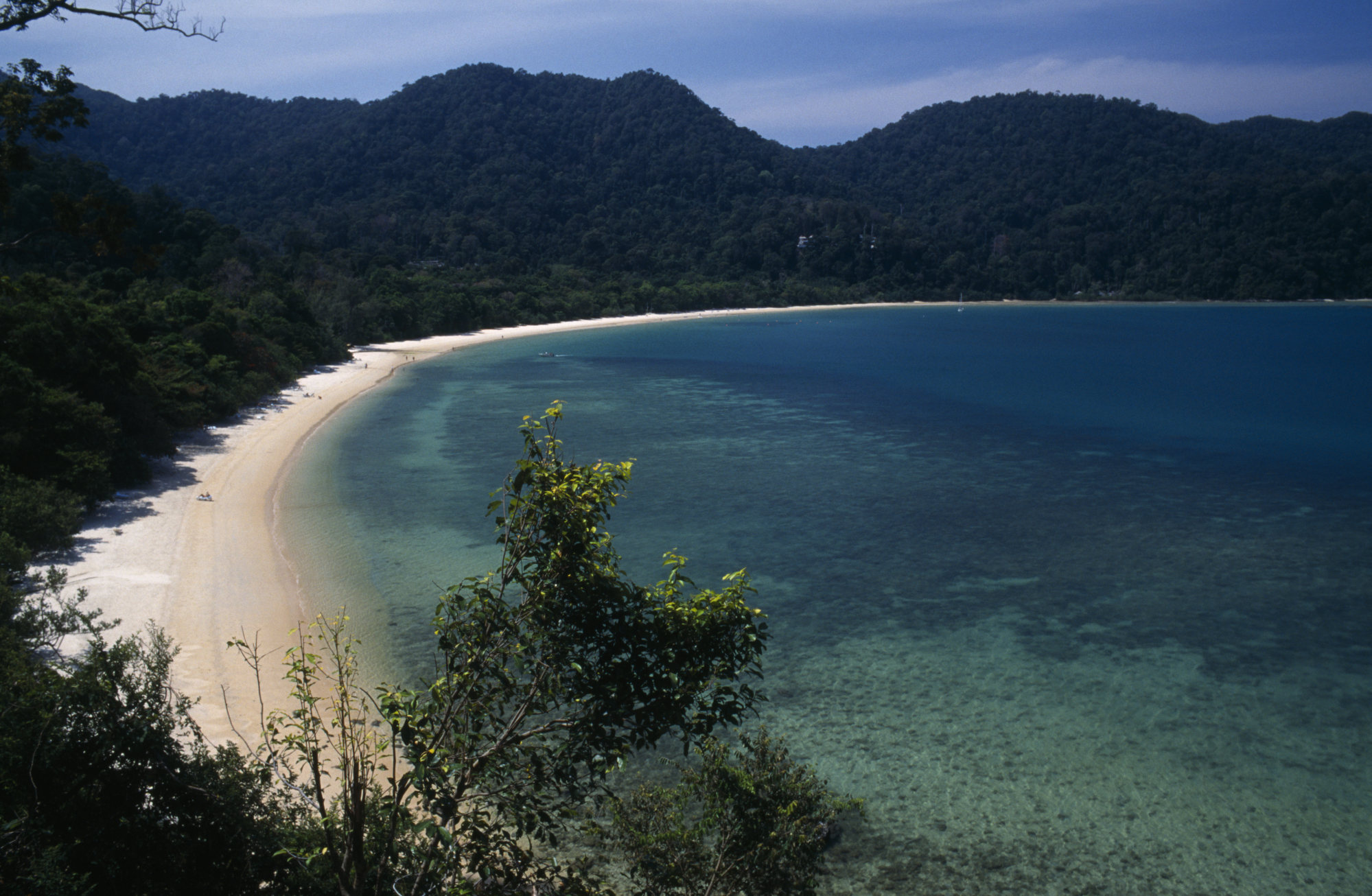
Malaysian resort island Langkawi can avoid environmental disaster by making the most of flying lemur and other wildlife’s comeback during Covid-19 travel ban, scientist says
- Langkawi faces ecological ruin from badly managed tourism, although the travel ban has helped wildlife, including colugos - flying lemurs - make a comeback
- A primatologist studying the colugo, an ‘evolutionary missing link’, believes more eco-tourism could be the answer, with Sabah in Malaysian Borneo an example
It’s pitch black and cicadas are kicking up their usual frenzy as we glimpse movement in the tropical thicket. What looks like a cross between a huge fruit bat and a squirrel breaks cover by jumping from a high tree trunk into the night. It glides gracefully until it lands on another tree, where it starts feasting on lichen and leaves.
The colugo, also known as “flying lemur”, is one of the world’s strangest mammals – and because it’s most active at night, also one of the least studied. Many – perhaps as many as 33 per square kilometre – live on Langkawi, one of Malaysia’s most popular holiday islands.
With large swathes of primary forest, coastal mangroves and the 500-million-year-old Machinchang Cambrian park, Langkawi was declared Southeast Asia’s first Unesco Geopark, in 2007. But rather than focus on preserving its unique fauna and natural resources through responsible eco-tourism, Langkawi’s authorities preferred to exploit its duty-free status and cheap tax-free alcohol to fashion the swanky resort island that attracted 3.92 million tourists in 2019.
As a result, according to a report published by United States conservation news portal Mongabay in 2018, Langkawi has been taken to the brink of environmental disaster. Little has been done to upgrade the island’s infrastructure and improve its inadequate sewage system, poor waste management and limited water supply. Plastic pollution remains an acute problem.

But one French primatologist is hoping the island’s colugos will help inspire a rethink. “Now that the island is really quiet in terms of tourism [thanks to the Covid-19 travel bans], the wildlife has come back all over the place, and that’s just amazing,” says Dr Priscilla Miard.
A few years ago, Miard started research on the more built-up island of Penang, about 60km southeast of Langkawi, where she “saw colugos everywhere”. Now, together with local students and conservationists, Miard is one of the few people in the world studying these nocturnal mammals.
‘I had to draw on my pension fund’: hard times for Langkawi, holiday island
Colugos have membranes stretching from their necks to their tail via their hands and feet, which help them glide between trees. Among other unique traits, colugos feed their babies with milk excreted from nipples placed under their armpits; clean their eyes by licking them, like lizards; and prefer eating flowers and leaves to fruit.
With all the other glider species of their order extinct, and having primates as their closest relatives, colugos represent something of an evolutionary missing link.
“There are so few people working on colugos it still amazes me,” Miard says. Assisted by the Penang-based NGO Malaysian Primatological Society, in 2018 Miard established a research station in Temoyong, in the south of Langkawi, which was open to the public before Covid-19 restrictions were imposed.
Miard will soon start a monitoring programme using subdermal radio-tracking VHF implants – the first time colugos will be tracked long-term. Miard and her team will study their movements, behaviour and social interactions both in a jungle environment and where humans dwell.

“We found that colugos use ultrasound as well as audible sounds to communicate, but we are focusing on the former as we discovered they use it more to talk to each other,” says Miard. “We also realised that colugos are not at all solitary: they live in big groups of more than 25 individuals in areas as small as 2.71 acres (1 hectare).”
As coronavirus lockdowns and the lack of international tourism in Malaysia have forced locals and hoteliers to think outside the box, this unusual period could represent the best opportunity for Miard’s project and discoveries – which were covered by a BBC Two television documentary team in February – change the minds of Langkawi’s tourism chiefs.
And because, for her research, Miard uses boardwalks that belong to some of Langkawi’s best hotels – on which guests are led on night walks and “safe” jungle experiences – the opportunity exists to start incorporating more eco- with the luxury tourism.
“We are starting to use tourism to fund our research project by coordinating with local companies and proposing night-themed activities in both Penang and Langkawi,” explains Miard, who lost one of her Langkawi field sites when fire ripped through the Andaman resort in January. She is now focusing on the Datai, a five-star resort that is better known for its work on coral reef conservation and rejuvenation.

“For the past two years, both resorts let us access their premises [for research] almost every night,” says Miard. “They have already proposed this kind of ecotour to their guests, but unfortunately [they cater to] a really specific high-spending niche, and normal tourists don’t have access to these activities yet.”
As lockdowns come to an end and travel is again allowed between Malaysian states, local authorities should embrace a more encompassing model of eco-tourism, believes Miard.
“Being more aware of the island’s many unique marine and land species could help draft more responsible and sustainable activities, similar to what Sabah has done so well for many years,” suggests the primatologist, referring to the tours to see orangutans in Sepilok, or the pygmy elephants, crocodiles and birds along the Kinabatangan River, that the state in Malaysian Borneo organises and promotes so well.

